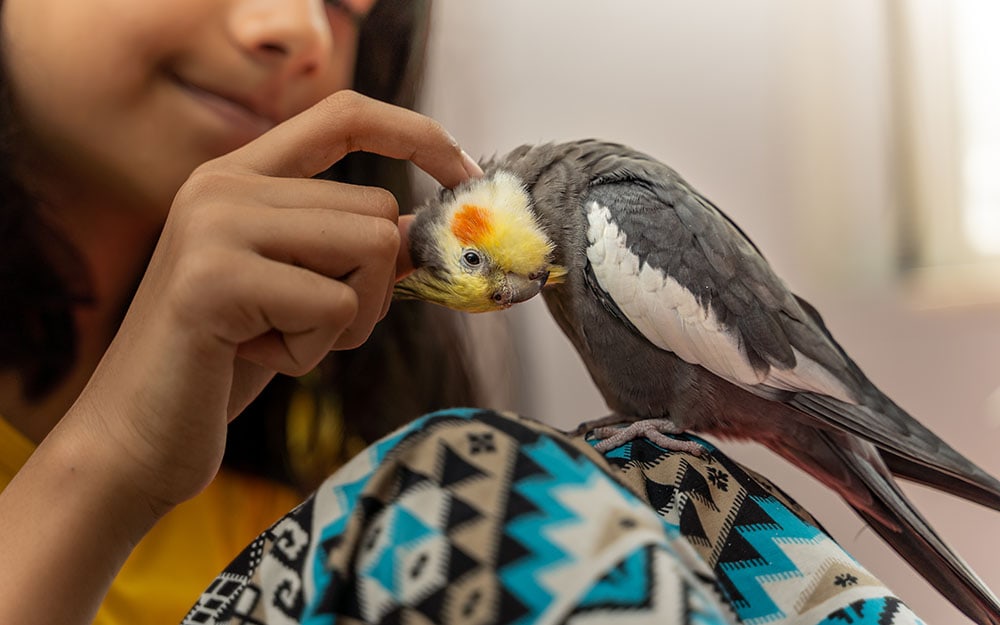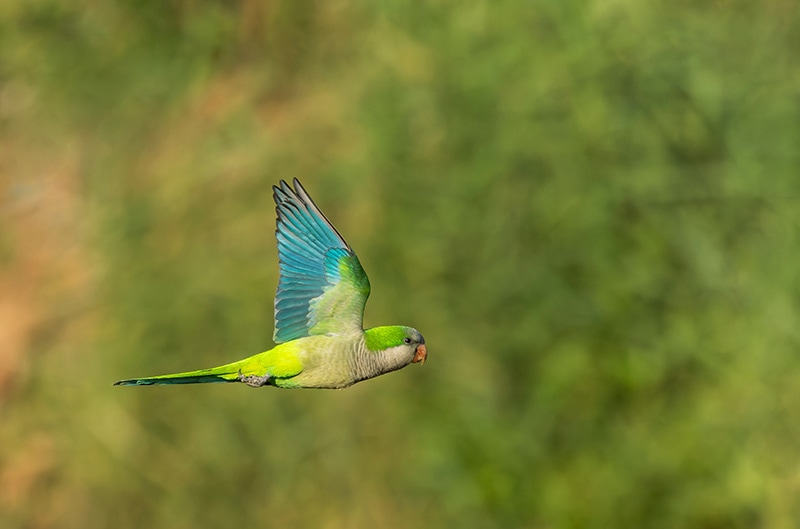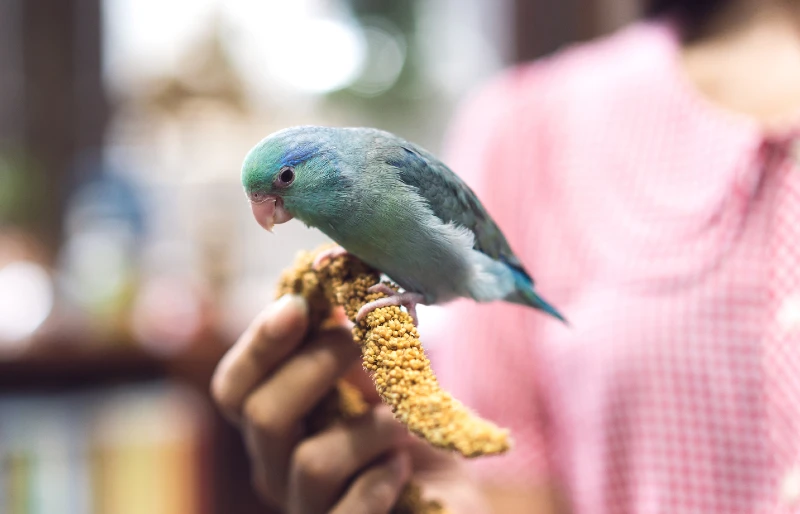Why Do Parakeets Bob Their Heads? 8 Vet-Reviewed Reasons
Updated on

This article has been fact checked and reviewed by a qualified veterinarian using information available at the time of review. However, the purpose of this article is not to replace a veterinary examination and advice but rather provide a general guide to medical and behavioral conditions. Parakeet owners are urged to seek tailored advice for their pet from a veterinary professional. The views and opinions expressed in this article are those of the writer.
Budgerigar Parakeets, budgies (Melopsittacus undulates) make great pets with their sweet-natured temperaments and songful chirps. They are often deemed easier to care for than most larger parrot species and never fail to entertain their owners with their quirky behaviors.
If you are lucky enough to own a budgerigar parakeet, you have probably observed their comical head-bobbing behaviors. Budgies will bob their head up and down for a variety of reasons, primarily to do with communication. The term parakeet means different things to different people, scientifically speaking they are a group of more than 100 species of smallish parrots with long tapering tails. It is common for people in the USA to call budgies by the term parakeet.
The 8 Reasons Why Parakeets Bob Their Heads
1. To Protect Their Territory
A common reason for parakeets to bob their head is to assert dominance and protect their territory. Parakeets consider their cage to be territory and will try to protect it from other birds or even unfamiliar pets and humans.
If you have recently gotten a parakeet that hasn’t been tamed yet, you might find that they bob their head and try to nip at you if they do not want to be handled. This type of behavior could extend to other pets in the home, such as new parakeets, a nosy cat or dog that tries to sniff their cage. It could be a parakeet’s way of communicating that they are feeling threatened and defensive.
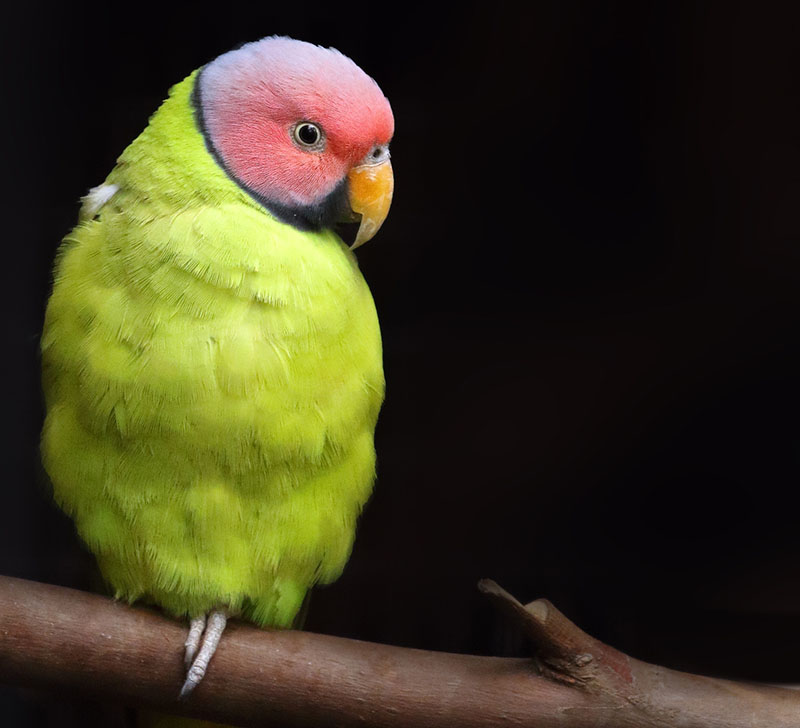
2. Attention
Once a parakeet has bonded with you, they are probably going to be eager for your attention. Many parakeets enjoy interacting with their owners, so they will find ways to catch your attention. One of their many ways of doing so is by displaying behaviors they associate with a positive interaction with you. So, if your parakeet knows that head bobbing makes you interact with them, they might do it more often.
Aside from grabbing our attention, parakeets may also head bob for another bird’s attention. Parakeet chicks or fledglings will often do it to their parents. Their head-bobbing behavior probably signals to their parents that they are waiting to be fed.
3. Excitement
Head bobbing could be a sign of excitement or contentment amongst parakeets. They can become enthusiastic about many things, whether it is about food or interactions with you. It is fairly normal for Parakeets to bob their heads when experiencing positive emotions since they cannot express how they feel by talking to us.
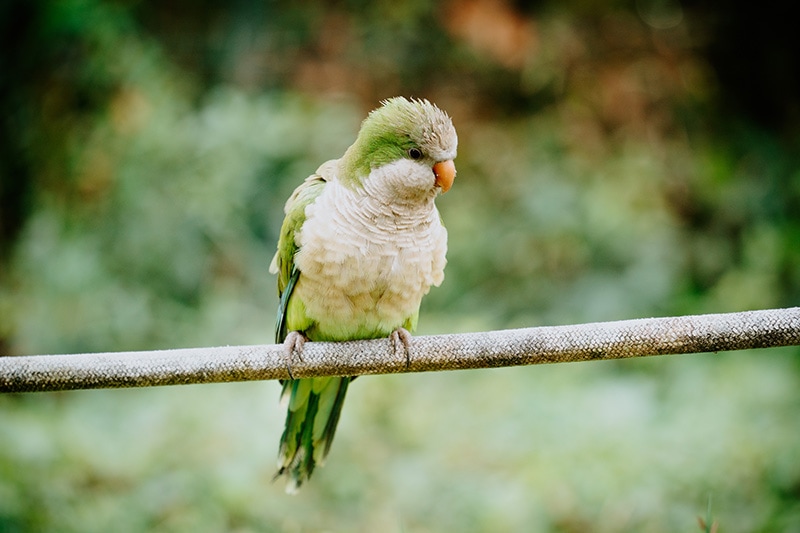
4. Courtship
Another common reason for parakeets to bob their heads is for courtship purposes. Many species of parakeets have head-bobbing as part of their mating dances. Male parakeets usually stand near the female and bob their heads towards the female to get their attention. The head bobbing is usually done as part of a dance. If a female parakeet is impressed by the male’s courtship ritual, she might give a reciprocating head bob back.
5. Boredom
A bored and lonely parakeet that craves entertainment may start bobbing their head. Parakeets need a spacious cage and various toys to keep them occupied. A plain and small cage is not a very stimulating environment for parakeets and might cause them to show boredom-related behaviors such as head bobbing. This could be their way of communicating that they want attention, food, or new toys as entertainment.
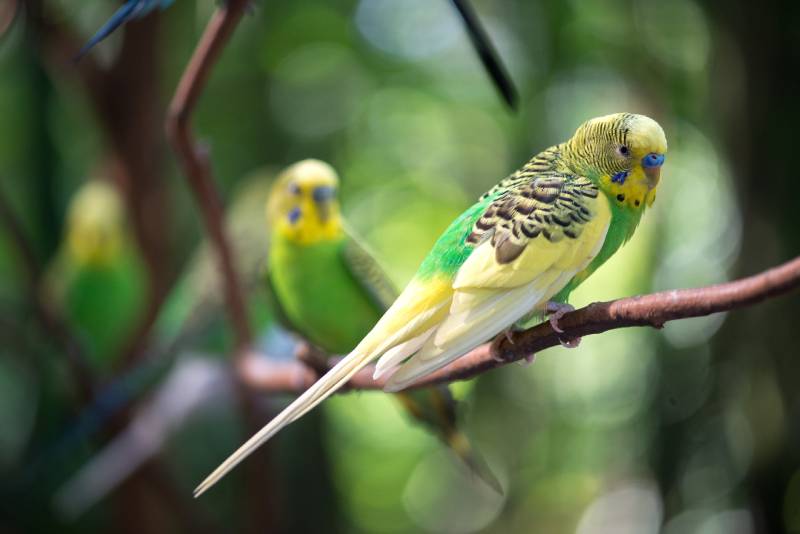
6. Regurgitation
Like most birds, parakeets can regurgitate partially digested food. They generally bob their head quickly as they move the food back up into their mouths. Parakeets usually regurgitate their food during courtship rituals or to feed their chicks. It is also common for them to regurgitate their food to show affection to other birds or their owners. Some parakeets might even regurgitate their food around their favorite toy or into a mirror once they see their reflection.
7. Limb Pain
A parakeet with a sore foot may shift their weight to get their weight off the sore leg, resulting in a head bob as they walk around. They might also not use the leg, hold it up or show other signs of pain such as a fluffed up appearance and reduced appetite (but note that birds instinctually do not show many signs of pain unless unbearable).
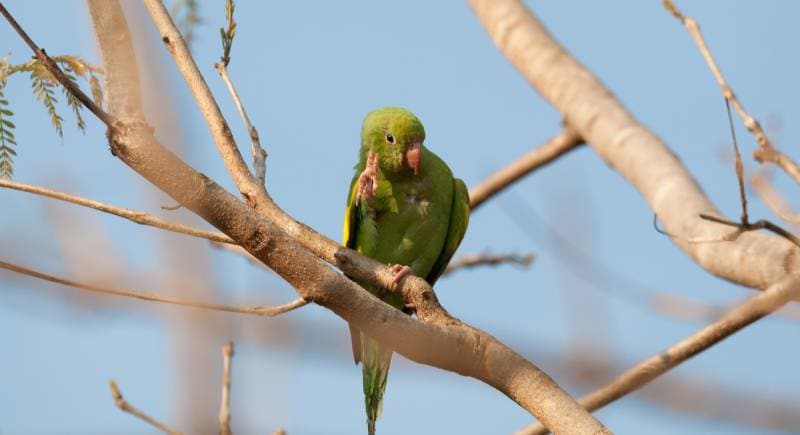
8. Illness
Tail bobbing is a common sign of illness in budgies which can rock their body and head too. Book an appointment with an experienced avian vet and look for other signs of disease such as loose droppings, reduced energy, sneezing, nasal discharge and open mouth breathing, as well as signs of pain.
Conclusion
Head bobbing is an interesting behavior seen in parakeets and is done for various reasons. The most common possible reasons for them to bob their heads are during courtship, excitement, or when defending their territories.
Head bobbing is generally not a cause for concern in parakeets and is a normal behavior. However, it is a good idea to contact a veterinarian if your parakeet is showing abnormal signs before or after head bobbing or the behavior is incessant.
Also see:
Featured Image Credit: Tyler Sprague, Shutterstock


